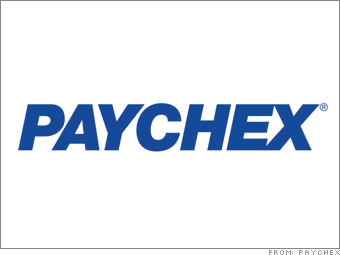Paychex, Inc. released its list of the top 13 potential regulatory changes that could possibly affect small businesses in the upcoming year. Paychex, provider of payroll, human resource and benefits outsourcing solutions to small and medium-sized businesses, also released an accompanying video.
“As we approach the New Year, Paychex wants to help small business owners understand the major regulatory issues that may potentially affect their business, either legislatively or through simple rule modifications,” said Martin Mucci, President and CEO of Paychex. “By identifying these top regulatory issues early on, business owners will not only be more informed, but prepared for 2013.”
Paychex’s list of the top changes businesses need to be aware of are:
- The Fiscal Cliff – The fiscal cliff ix expected to have an impact on most businesses, regardless of size, as well as the nation. Potential outcomes are expiration of the current payroll tax holiday and Bush-era income tax rates, mandated federal spending cuts, an increase of capital gains and estate tax rates, new taxation rules for dividends and the end of several tax credits.
- The Tax Gap – As the IRS continues to look for ways to close the $450 billion gap between taxes owed and the taxes expected to be collected, IRS examiners are focusing on the areas with highest level of non-compliance. Examiners believe underreporting is a major factor and are turning to technology to help identify audit targets.
- Health Care Reform – The Supreme Court ruling and the results of the presidential election have both kept the health care reform in place and the Medical Loss Ratio standards will continue into next year. As a result, insurance carriers will be required to provide rebates to policyholders for any prescribed percentage of premium dollars that go unused and employers of 250 or more employees must report the cost of employer-sponsored health coverage on their 2013 W-2 forms. In 2013, employers will be required to withhold and report wages relative to the additional Medicare tax and a $2,500 limit will be placed on employee contribution to a medical flexible spending account.
- Worker Misclassification – The IRS and U.S. Department of Labor are expected to more actively enforce the correct classification of workers and independent contractors. Legislative reform would impose harsher financial penalties on employers that misclassify their workers.
- Tax Reform – Areas that are under consideration include tax benefits such as employer contributions to healthcare premiums, employer and employee retirement plan contributions, mortgage interest deductions, charitable contributions and tax advantages for corporate structures.
- Retirement Savings – Limits for retirement plan contributions will increase in 2013, while legislation might be introduced to manage the effects from employees withdraw or borrow from their retirement plans. Employers that do not currently sponsor a retirement plan could be required to withhold money from a worker’s wages to deposit into an automatically enrolled retirement account.
- National Labor Relations Board Activity – The National Labor Relations Board is expected to try to adopt rules to help unions organize employees. In addition, the NLRB is expected to monitor employer protocols, such as social media policies, employment-at-will disclaimers and harassment investigation procedures.
- US DOL Agenda – The DOL Wage and Hour Division is expected to focus on regulations for the expanded military family leave under the Federal Family and Medical Leave Act as well as a final rule that will restrict current minimum wage and overtime exemptions for companionship services and live-in domestics. The rule process for “Right to Know” regulations may also be revived.
- Immigration – Immigration reform will be a top focus as Congress looks to pass legislation and for heavier enforcement in the area of I-9 audits continues. More employers will be required to use E-Verify under state and federal regulations as part of an overall immigration strategy.
- Consumer Financial Protection Bureau – The Consumer Financial Protection Bureau expected to play a larger role in overseeing banks, credit unions and “non-bank financial institutions” such as mortgage companies, payday lenders and debt collectors.
- Cyber Fraud – As cyber fraud continues to increase, federal and state legislation will continue to expand and strengthen in efforts to secure confidential personal and medical information.
- Business Continuity – Businesses need to have a business recovery and continuity plan to ensure they have uninterrupted services in the event of any unforeseen circumstances. Documents should also be kept at an alternative location and retention guidelines need to be in place for important documents.
- FDIC Insurance – The current unlimited FDIC coverage for noninterest-bearing checking accounts are set to expire in 2013 and the limits will revert back to $250,000 per account.
“Paychex is dedicated to helping America’s small businesses achieve greater economic success. We will continue to keep a close eye on these regulatory matters as we enter 2013 in order to better serve the needs of our clients,” said Mucci.
Thanks for reading CPA Practice Advisor!
Subscribe Already registered? Log In
Need more information? Read the FAQs





